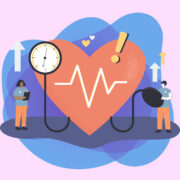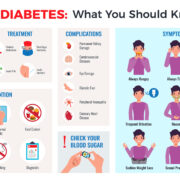A nutritious, well-balanced diet plays a crucial role in managing and preventing heart disease. Your food choices and portion sizes can significantly lower your risk of developing heart conditions. Eating plenty of vegetables, fruits, and whole grains can help reduce risk factors such as excess body weight, high LDL cholesterol levels, high blood sugar, and high blood pressure. Following specific diets like the Mediterranean or DASH diet can lead to better heart health. By making simple changes to your diet and incorporating regular physical exercise, you can take the first step towards a healthier heart.
Fruits and Vegetables for a Healthy Heart

Nutritional Benefits of Fruits and Vegetables
Fruits and vegetables are packed with vitamins, minerals, and antioxidants that help reduce inflammation and prevent plaque buildup in arteries. They are also rich in fibre, particularly soluble fibre, which lowers the risk of heart disease. Most fruits and vegetables are low in fat and calories, making them ideal for weight management and promoting satiety.
Recommended Servings
The American Heart Association (AHA) recommends at least four to five servings of fruits and vegetables daily. A single serving can include:
The American Heart Association (AHA) recommends at least four to five servings of fruits and vegetables daily. A single serving can include:
- One medium-sized fruit (e.g., apple, banana, orange)
- One cup of raw or cooked vegetables (e.g., carrots, broccoli)
- One cup of starchy vegetables (e.g., potatoes, squash)
- One cup of raw leafy vegetables (e.g., spinach, kale)
- Half a cup of fresh, frozen, or canned fruits and vegetables (choose low-sugar and low-sodium options)
Whole Grains for Heart Health

The Importance of Fiber
Whole grains are a fantastic source of fibre, which helps control weight, improve blood sugar levels, and increase HDL cholesterol. Foods high in fibre tend to be lower in calories, aiding in weight management and reducing heart disease risk.
Recommended Whole Grain Foods
The AHA suggests three or more servings of whole grains daily. A single serving can include:
- One slice of whole-grain bread
- Half a cup of cooked brown rice or wholemeal pasta
- Half a cup of cooked oatmeal
- One cup of whole-grain cereal
- Five whole-grain crackers
- Three cups of air-popped popcorn (unsalted and unsweetened)
Protein Sources for a Healthy Heart

Choosing the Right Proteins
Protein is essential for energy, muscle building, and overall heart health. Opt for plant-based protein sources over animal-based foods, as they provide more fibre and less saturated fat. Include fish, particularly oily fish rich in omega-3 fatty acids, which help reduce heart disease risk.
Recommended Servings of Protein
A protein source should be included in every main meal. Recommended servings per week include:
- Fish: Two servings (e.g., salmon, mackerel) – 3 oz cooked or ¾ cup flaked
- Eggs: Up to six
- Red meat or poultry: No more than two servings – 3 oz lean meat or ½ chicken breast
- Nuts and seeds: Three to four servings – ½ oz unsalted, dry-roasted nuts or seeds
- Legumes: Three to four servings – ½ cup cooked beans or lentils
- Whole soy products: Three to four servings – ½ cup soybeans or 25g tofu
Low-fat or Fat-Free Dairy

Benefits of Dairy Products
Dairy products are excellent sources of calcium and protein, vital for bone and heart health. Including low-fat or unsweetened dairy products in your diet can lower hypertension and reduce LDL cholesterol.
Recommended Dairy Servings
The AHA recommends three servings of low-fat dairy daily. A single serving can include:
- One cup of low-fat (1%) or fat-free milk
- One cup of low-fat plain yoghurt (unsweetened)
- 1 ½ oz of low-fat cheese or cottage cheese
- One cup of unsweetened soy milk or a small container of plain soy yogurt
Healthy Fats for Heart Health
Monounsaturated and Polyunsaturated Fats
Healthy fats, found in plant-based oils, nuts, seeds, and fish, can lower bad LDL cholesterol levels. Include foods rich in monounsaturated and polyunsaturated fats, such as olive oil, sunflower oil, and avocados, in your diet.
Avoiding Harmful Fats
Limit foods high in saturated and trans fats, such as processed meats, full-fat dairy, fried foods, and fatty cuts of red meat and poultry. These fats raise LDL cholesterol levels and increase the risk of heart disease.
Practical Tips for a Heart-Healthy Diet
Balanced Meals
Aim for balanced meals with half your plate filled with fruits and vegetables, a quarter with whole grains, and the other quarter with protein. Opt for cut-up vegetables or fruits for snacks and drink plenty of water throughout the day.
Calorie Management
Monitor your calorie intake to maintain a healthy weight. A typical diet should include about 2000 calories per day, but this may vary based on physical activity, gender, and age. Choose healthy cooking methods like poaching, grilling, steaming, or baking instead of frying or roasting.
Limiting Unhealthy Foods
Avoid foods and beverages high in salt, sodium, sugar, and saturated or trans fats. These contribute to weight gain, high blood pressure, and increased cholesterol levels, raising the risk of heart disease.
Conclusion: Adopting a healthy, well-balanced diet is key to reducing your risk of heart disease. Incorporate a variety of fruits, vegetables, whole grains, and lean proteins into your daily meals. Opt for healthy fats and limit unhealthy ones. Consult your doctor or nutritionist to help plan a diet that suits your needs and supports your heart health.





